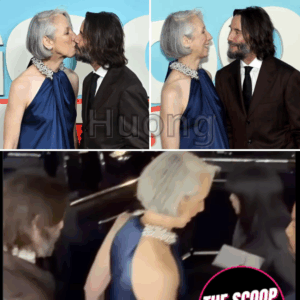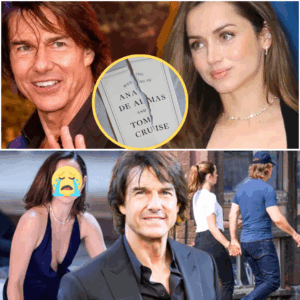In an era where artificial intelligence blurs the lines between reality and fabrication, Zelda Williams, the daughter of legendary comedian and actor Robin Williams, has drawn a firm line in the digital sand. On October 7, 2025, Zelda took to Instagram to express her frustration and heartbreak over the influx of AI-generated deepfake videos featuring her late father. “Please, just stop sending me AI videos of Dad,” she pleaded in a raw and emotional post, labeling these creations as “horrible TikTok slop” that “tarnishes the legacies of real people.” This isn’t just a personal grievance; it’s a poignant cry against a growing technological menace that resurrects the dead without consent, commodifying grief and distorting memories. As Zelda begins blocking and restricting users who bombard her with these clips, her actions ignite a broader conversation about ethics, legacy, and the human cost of AI’s unchecked proliferation. In a world still mourning the loss of one of its brightest stars, Zelda’s stand reminds us that some boundaries should never be crossed, stirring emotions and sparking debates that resonate far beyond social media feeds.
The post, shared with her over 200,000 followers, quickly went viral, amassing thousands of likes, shares, and supportive comments within hours. Fans and fellow celebrities rallied behind her, with messages like “Respect her wishes—Robin deserves better” and “AI is crossing lines it shouldn’t.” But to fully grasp the weight of Zelda’s words, we must revisit the indelible mark her father left on the world. Robin Williams, who tragically passed away on August 11, 2014, at the age of 63, was more than an actor—he was a force of nature. Born on July 21, 1951, in Chicago, Illinois, Williams rose from humble beginnings to become one of Hollywood’s most beloved figures. His career spanned over four decades, blending manic energy with profound depth in roles that ranged from the hilarious to the heartbreaking.
Williams’ breakthrough came in the late 1970s with the sitcom Mork & Mindy, where his alien character Mork from Ork showcased his improvisational genius and otherworldly charisma. This led to a string of iconic films: the cross-dressing dad in Mrs. Doubtfire (1993), the inspirational teacher in Dead Poets Society (1989), and the voice of the Genie in Disney’s Aladdin (1992), which earned him a special Golden Globe. His Oscar-winning performance as Sean Maguire in Good Will Hunting (1997) revealed a vulnerable side, drawing from his own battles with depression and addiction. Off-screen, Williams was a philanthropist, co-founding Comic Relief USA to aid the homeless, and a devoted family man to his three children: Zachary, Zelda, and Cody. His suicide, attributed to Lewy body dementia, sent shockwaves globally, prompting tributes from presidents to peers. President Barack Obama called him “one of a kind,” while Steven Spielberg shared how Williams’ humor lifted him during tough shoots.
Zelda, born in 1989 and named after Princess Zelda from The Legend of Zelda video games (a nod to her father’s geeky side), has carved her own path as an actress, director, and writer. She’s appeared in films like House of D (2004) and directed episodes of TV shows such as Criminal Minds. But her most public role has been as guardian of her father’s legacy. In the years since his death, Zelda has been vocal about mental health, founding the Robin Williams Foundation to support arts education and suicide prevention. She’s also navigated the complexities of fame’s shadow, often sharing heartfelt anecdotes about her dad on social media. “He was the best father anyone could ask for,” she once wrote. Yet, the rise of AI has turned remembrance into torment.
The offending deepfakes, often originating from TikTok and shared via Instagram DMs, depict Robin Williams in fabricated scenarios: delivering modern monologues, reacting to current events, or even endorsing products. Powered by tools like DeepFaceLab or Midjourney, these videos stitch Williams’ likeness onto new audio and visuals, creating eerie simulacra that mimic his rapid-fire delivery and expressive face. While some creators claim they’re “tributes,” Zelda sees them as violations. “To watch the legacies of real people be condensed down to … horrible, TikTok slop puppeteering them is maddening,” she elaborated in her post. “You’re not helping anyone by sending these. You’re just perpetuating a cycle of exploitation.” Her decision to block and restrict senders is a pragmatic response to what she describes as an “inundation” of such content, especially around anniversaries of her father’s death.
This isn’t Zelda’s first clash with AI. In 2023, she criticized the use of her father’s voice in AI-generated audio books, calling it “personally disturbing.” Her stance aligns with a growing chorus of voices in Hollywood. The Screen Actors Guild (SAG-AFTRA) has lobbied for protections against unauthorized AI replicas, with Zelda testifying before Congress in 2024 alongside other celebrity heirs. “Our loved ones’ images aren’t toys,” she argued. The issue gained urgency with OpenAI’s Sora model in early 2025, which can generate hyper-realistic videos from text prompts. A Washington Post report highlighted how families of deceased celebrities, from James Dean to Princess Diana, are horrified by AI resurrections. “It’s like grave-robbing in the digital age,” one expert noted.
Deepfakes, first coined in 2017 from a Reddit user blending “deep learning” and “fake,” have evolved from harmless memes to potent tools for misinformation and exploitation. In politics, they’ve fabricated speeches by leaders like Joe Biden; in entertainment, they’ve “revived” stars for ads or films without consent. A 2024 study by MIT found that 90% of deepfakes online involve non-consensual pornography, but the rise of “resurrection” videos targets the deceased. Platforms like TikTok, with its algorithm favoring viral novelty, amplify these clips. A search for “Robin Williams AI” yields thousands of results: him “rapping” modern songs or “commenting” on 2024 elections. Creators defend them as “fan art,” but ethicists argue they erode authenticity. “When you puppeteer the dead, you strip away their humanity,” says Dr. Lisa Bodenheimer, a media ethics professor at NYU. “It’s not creation; it’s desecration.”
For Zelda, the pain is personal. Robin Williams’ death was shrouded in misinformation; tabloids speculated wildly, forcing the family into seclusion. Now, AI resurrects him in ways that contradict his values—Williams was a Luddite at heart, wary of technology’s dehumanizing effects. In a 2013 interview, he joked about robots taking jobs, but his real fear was losing genuine connection. Zelda echoes this: “Dad was about spontaneous joy, not scripted simulations.” Her blocking spree isn’t censorship; it’s self-preservation. Psychologists note that such deepfakes can retraumatize grieving families, triggering “prolonged grief disorder.” A 2025 survey by the American Psychological Association found that 65% of bereaved individuals exposed to AI replicas of loved ones reported increased distress.
The broader implications ripple through the industry. Disney, which owns rights to Williams’ Genie voice, sued an AI company in 2024 for unauthorized use. SAG-AFTRA’s 2023 contract includes AI clauses, requiring consent for digital doubles. Yet, enforcement lags; platforms like Instagram and TikTok rely on user reports, with inconsistent moderation. Zelda’s post has spurred calls for better filters—perhaps AI-detection tools in DMs. Tech giants like Meta and ByteDance have pledged improvements, but critics say it’s lip service. “Until there’s legislation, this will continue,” warns Tim Berners-Lee, web inventor, in a recent op-ed.
Zelda’s activism extends beyond her father. She’s joined forces with other celebrity offspring, like Paris Jackson and Riley Keough, in the “Legacy Protectors” coalition, advocating for “right of publicity” laws for the deceased. In California, where Williams lived, a 2025 bill extends these rights posthumously for 70 years, partly inspired by Zelda’s advocacy. Her directorial debut, Lisa Frankenstein (2024), explores themes of resurrection and loss, subtly nodding to her experiences. “Art should heal, not haunt,” she told Variety in a 2025 interview.
Fans’ responses highlight a divide: some apologize profusely, vowing to stop sharing; others defend deepfakes as “harmless fun.” One TikTok creator, with a video of AI-Robin “endorsing” a crypto scam, doubled down: “It’s tribute, not tarnish.” But Zelda counters: “If you truly loved Dad, respect his memory by letting him rest.” This sentiment echoes across cultures— in Japan, “digital resurrection” firms face backlash for “ghost” holograms; in India, Bollywood stars’ families sue over AI ads.
As AI advances— with models like Grok 4 generating lifelike videos— the stakes rise. Experts predict a “deepfake epidemic” by 2030, with 500 million fabricated videos annually. Solutions? Watermarking tech, like Google’s SynthID, embeds invisible markers in AI content. Education campaigns, such as UNESCO’s AI ethics guidelines, urge “human-centered” innovation. For Zelda, it’s simpler: “Think before you send. Real people are behind these screens.”
In conclusion, Zelda Williams’ bold move against AI deepfakes isn’t just a personal boundary—it’s a rallying cry for dignity in the digital age. As we celebrate Robin Williams’ legacy—his laughter, his light—we must protect it from shadows cast by code. Zelda’s words challenge us: Will we let technology tarnish our heroes, or will we honor them by choosing empathy over entertainment? In blocking those clips, she’s not just safeguarding her grief; she’s fighting for all legacies at risk. The world watches, hoping her stand sparks the change needed to keep the real Robin shining bright.

